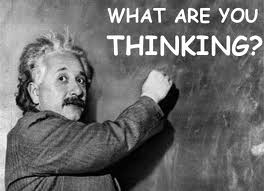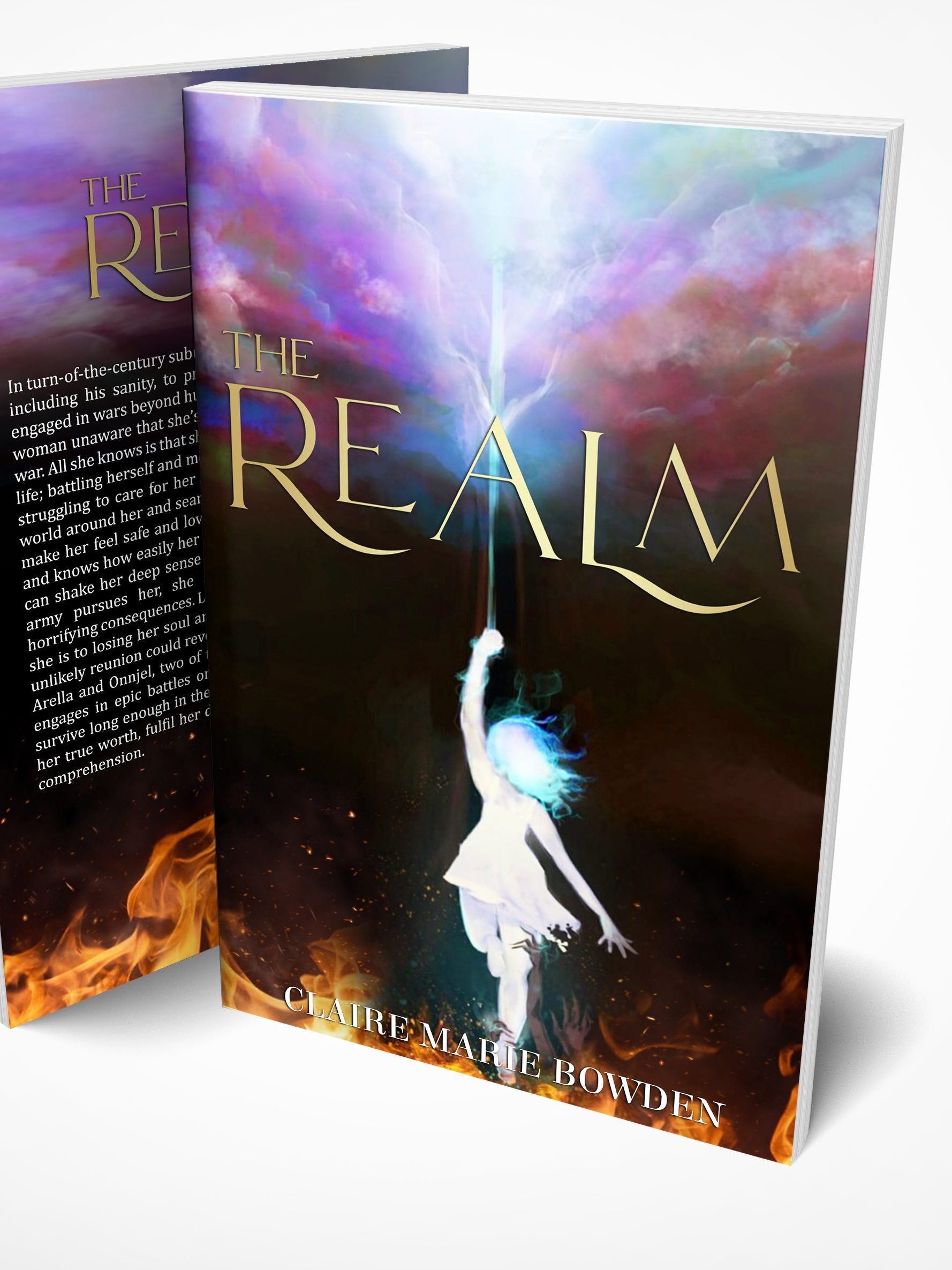05/01/2013
Is Sense Really Common?
A friend recently quizzed me, “Where on earth is their common sense?” in the midst of describing someone’s behaviour which she found to be unacceptable. It was coincidental, because I have been pondering a few questions about common sense lately.
How common is sense anymore? What exactly are the common elements of sense? Does common sense even exist? Or does it perhaps keep evolving as the generations change focus on what is sensible?
I had a thought the other day that perhaps common sense might advance as we develop sensitivity to consequences, to become more sensitive to what we feel is right and wrong.
Does it then make sense, that those who appear to have less common sense than others, may have been afforded less understanding of the consequences when faced with their own poor choices? Are those who have lacked productive discipline even aware of the actual repercussions of their actions which lack ‘common sense’?
The wisdom of this generation varies far and wide, some think that it is common sense to ‘block’ someone who bullies you online, yet regardless of the amount of awareness on this subject, many others seem unable to reach this conclusion. A few may recognise that it is common sense to be ready to be a parent when you choose to start having sex, especially if you been told this all your life. Yet so many others are still children who can barely look after themselves when they make this huge decision. Some feel it is common sense not to air dirty laundry on facebook because it gives so many others the opportunity to voice their opinion about the private situation, and that adds fuel to a fire they are already struggling with. We don’t have to look far on our newsfeed to see how uncommon this sense is… It can leave those of us who have “common sense” baffled by the lack of sense those around us display.
I asked my husband, “What do you think is the difference between sense and common sense?” He replied, “I don’t think there is any such thing as common sense!” Wow! I found his straight to the point answer, freeing and mind blowing on so many levels.
Common sense refers to an accepted understanding which everyone knows. Past examples of common sense include ‘the world is flat’ and ‘African Americans only have worth as slaves’. So then assuming everyone knows a wide range of things is a stretch! Isn’t it?
While looking up some examples of common sense I found this quote.
“Don’t confuse lack of common sense with absent mindedness. Common sense refers to deliberate decisions about which you can predict the outcome.” (Ref – Yahoo Answers)
So therefore, is anything we can predict the outcome of (either via our own experience or a logical reasoning) simply sense, or can it become ‘common’ if enough people accept the theory?
So some examples might be; if you go out in the rain you are bound to get wet. Or if you don’t eat you get hungry, don’t drink and become thirsty, don’t sleep and become tired. The really basic stuff may in fact be common sense, yet we often stretch this phrase to accommodate other examples which may not be as common as we have been led to believe.
I personally have learned many valuable lessons and live my life differently because of them. The choices I apply in my life have now become common practice for me so they feel like common sense to me. But can I expect anyone else to have the same sensibilities as me in their own lives? I don’t think so….
All these questions have led me to a couple of theories.
We can no longer assume everyone or anyone knows something that we understand, just because we have believed it for a long time and found others who agree with us. I have lost count of how many things I thought I knew to be true only to discover they were merely a misguided opinion of someone who was certain enough to be convincing.
The idea of adamant common sense may be linked to our childhood, if whoever raised us convinced us, and our other family members, of various ‘reasonings’, then it can be frustrating and confusing when the outside world holds completely different principles to these.
Perhaps it’s time to let common sense and the assumptions we make regarding it, take a back seat to sense from sensitivity and open mindedness, and encourage loving explanations instead of frustrated collisions and unmet expectations?










stephenedwards425 said,
05/01/2013 at 9:10 am
Reblogged this on LifeRevelation and commented:
My thoughts exactly…be encouraged!
LikeLike
Tina Del Buono, PMAC said,
05/01/2013 at 11:41 am
I think you covered this topic very well 🙂
LikeLike
The Water Bearer said,
05/01/2013 at 5:06 pm
Thanks so much Tina. Blessings to you! 🙂
LikeLike
George Hayward said,
06/01/2013 at 12:52 am
Great post with lots of thought-provoking questions! I especially like your theories at the end. It’s a tricky topic that I hadn’t thought much about. Your third theory is similar to a thought I was having while reading: maybe “lack of common sense” is something we use to belittle others while at the same time magnifying ourselves…making ourselves seem smarter. But, as you point out, maybe our own “common sense” isn’t as accurate as we may think!
LikeLike
The Water Bearer said,
06/01/2013 at 6:15 am
Oh George Yes Definitely. Pride before a fall and all that you know… Haha We are so quick to boost ourselves aren’t we! All I can say about that is, that I used to think others ‘should’ think how I think and I was always angry and dissapointed, These days I am much less concerned with what others think and whether they agree with me or not, and as a result I am much happier with how life rolls around. 🙂 Thanks so much for your great comment, Blessings to you!
LikeLike
Subhan Zein said,
07/01/2013 at 4:09 am
Plato had the same question thousands of years ago, and he had the answers in one of his books.
Subhan Zein
LikeLike
The Water Bearer said,
07/01/2013 at 7:40 am
Thank you so much for the reference Zubhan. 🙂 I will look into that further. Blessings to you!
LikeLike
The Water Bearer said,
07/01/2013 at 9:04 am
I just read this essay on common sense
http://reflaction.org/philosophy/commonsense.html
and found it entertaining and enlightening. I also found myself comparing my philosophy in my post with the points it makes towards the necessity for common sense philosophy.
Common – being a philosophy for everyday common people rather than being reserved for only deep thinkers, academics and philosophers. And Sense, being reasonings founded and backed up by perceptions through senses. I guess that concurs somewhat with what I was saying about sensitivity to consequences and a lack of perceiving consequenses through a lack of discipline. Also that as the generations develop, the tendancy to make philosophy too hard (complex) for normal thinkers to understand, has diminished the scope that ‘sense’ can be understood and become commonly accepted. Would love to hear your thoughts. 🙂
LikeLike
Subhan Zein said,
07/01/2013 at 10:09 am
If teacher is a job, then philosopher is not. I guess everyone can become a philosopher without necessarily entering the complexities of philosophical discussions that are labelled through academic snobbery just to create borders between the world of ideas (the thinkers) and the real world (the common people). You are right. Common sense should be commonly accepted, and that is why, humankind through their own deep thinking, not necessarily through rigorous training, is capable of achieving just that.
Some achieve common sense, and then eventually wisdom, through rigorous intellectual training. Plato himself, Aristotle, Pythagoras, and others are among this category. And some others achieve through meditation and looking for the spiritual being that they have within, and they succeed also. Jesus, Buddha, Mohammed, and Jalaluddin Rumi are among this category. And mind you that philosophy is a term that is labelled for people ‘who love wisdom’, not necessarily people with a PhD in Ancient Greek Philosophy. What about us? Cannot we be philosopher? We can.
In my view, the only difference that has resulted through this distinction is that while those people provide a philosophy that can shed light on the course of humankind and history, we the common people may use philosophy for our daily life. That being said, philosophy only finds its meaning when we can apply it. Any heartbreaking moments, tragedy, or moments of joy that we have in life-these are a series of philosophical matter that we can exercise to enhance our life, to become a better person, to be wiser. We do this through some serious thinking, and sometime through contemplation and meditation. Only by doing so can our heart be illuminated Gossipy talks with your peers do not help. Ever heard of a Lebanese boy who endured a series of perpetual family tragedy when he was young, only to become the most successful poet of the 20th century? His name is Kahlil Gibran. His poetry reflects the deep philosophical thinking that he had to survive his trivial daily pursuit, although later on it was proven so great that it became masterpiece. I suppose Pablo Picasso did the same with his painting and if you carefully read Marilyn Monroe’s pithily sayings, you know that she was not a dumb blonde. I would argue that a lot of what she and Picasso said are not just statements without meaning. They’re a result of their deep thinking throughout their stages of life. That’s philosophy. That’s philosophy.
Interestingly, you’d be able to find that a lot of artists and creative people are those who listen to their soul, those who perform deep thinking in their work. That’s philosophy. And when they need it they succeed in using this form of philosophical inquiry to transform a breakdown to a breakthrough.
This also reveals that people materialize their philosophical inquiry through their work. Gibran used poetry, Picasso painting, and Marilyn acting. I choose writing. You? Pick up your roles. 😉
Subhan Zein
LikeLike
The Water Bearer said,
07/01/2013 at 10:34 am
As someone who classes themselves as a “Lover of Wisdom” , (I only recently came to accept this title, although it has been true for many years) I can now accept that I have philosophies which I share through my writing and also through deep, challenging, questioning, conversations (often too heavy for my Hubby, lol) which are rarely gossipy or superficial, and as you say, I’m thrilled that I can be a philosopher without the PhD.
I definitely fall into the category of developing philosophies through trauma, spirituality and more recently meditation. Certainly breakthroughs from breakdowns!! How about you?
As I have been uneducated, (aside from graduating High School) I am not familiar with much of the background on this subject, but I am researching the more I write and develop my theories. As such I have not heard of Kahlil Gibran, sadly, although you have peaked my interest and I will look him up. 🙂
Thank you so very much for sharing your knowledge of this subject with me. I have become a recent addict of http://www.ted.com/ and reading books on philosophy, soaking up as much wisdom as I can. I truly appreciate you helping quench my thirst! Blessings…
LikeLike
Subhan Zein said,
09/01/2013 at 6:46 pm
I am the same with you, pretty much. Although I have completed a PhD, but that was in Language Policy, and not philosophy, LOL, and I would say that I learn a lot through life tragedy, which then eventually shapes my own life philosophy.
Those who reach true wisdom, Gibran, Rumi, and Budha, suffered a lot during their lifetime. Gibran was drowned in poverty, was blessed with an abusive father,and lost 3 of his family members just when he was a teenager; whereas Rumi was deeply longing for the companion of Syams Tabriz before eventually developing his own philosophy. Buddha? Ah, you know the story already.
Yes, I love TED too. In fact I encourage my students to go there to learn about new ideas and inspiration. And when they found a lot of the speakers come from non-native English backgrounds they were more fascinated! Things like this should be more common and become a trend, and not just Big Brother and the Kardashians. Sorry for my rant, just my two cents.
Take care, and many blessings and much love to you. 🙂
LikeLike
The Water Bearer said,
10/01/2013 at 6:57 am
I am not familiar with the story of Buddah. But you are a good teacher, Thank you for sharing with me. Blessings to you dear friend..
LikeLike
Subhan Zein said,
11/01/2013 at 10:41 am
Thank you, blessings to you. 🙂
LikeLike
Donna said,
07/01/2013 at 11:00 pm
Good thought provoking post! I believe all that we have depended on in the past…common sense… is being shaken by God so we will begin to question what we have appropriated as our beliefs. His wisdom is the only sense that will withstand the light of truth.
LikeLike
The Water Bearer said,
08/01/2013 at 7:41 am
Hmmmm interesting and valid point. I was convinced of so many lies until He shined a light, and the truth was revealed. Thanks for reading and commenting. Blessings to you!
LikeLike
GodGirl said,
12/01/2013 at 6:43 pm
Well expressed… What fresh ideas! I’ve never thought of common sense this way, but it certainly is interesting when we look at where this supposed sense originated. So-called wisdom is certainly passed on by our parents, and we tend to adopt their line of reasoning. Certainly good parents will teach basic consequences.
I love your final thought about sensitivity and open-mindedness – totally agree!
LikeLike
The Water Bearer said,
12/01/2013 at 8:10 pm
Thanks!! What a great comment. So glad you found it worthwhile. Many blessings to you sweet sister. 🙂
LikeLike
coastalmom said,
22/01/2013 at 1:08 am
You ARE a good teacher and excellent writer!
LikeLike
The Water Bearer said,
25/01/2013 at 7:34 am
Thanks so much. Shucks* You are too kind. Im so glad you liked it. Blessings to you.
LikeLike
Todd Lohenry said,
04/02/2013 at 9:35 pm
Perhaps this was already quoted and I missed it, but Einstein himself said “Common sense is the set of prejudices one acquires by the age of 18”. I have said to my wife many times that if common sense were so common it would be more common. As you can see, I’m no Einstein but I agree with your husband…
LikeLiked by 1 person
The Water Bearer said,
04/02/2013 at 9:37 pm
What a great quote and a great comment. Thank you!
LikeLike